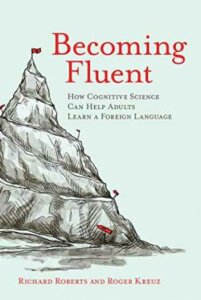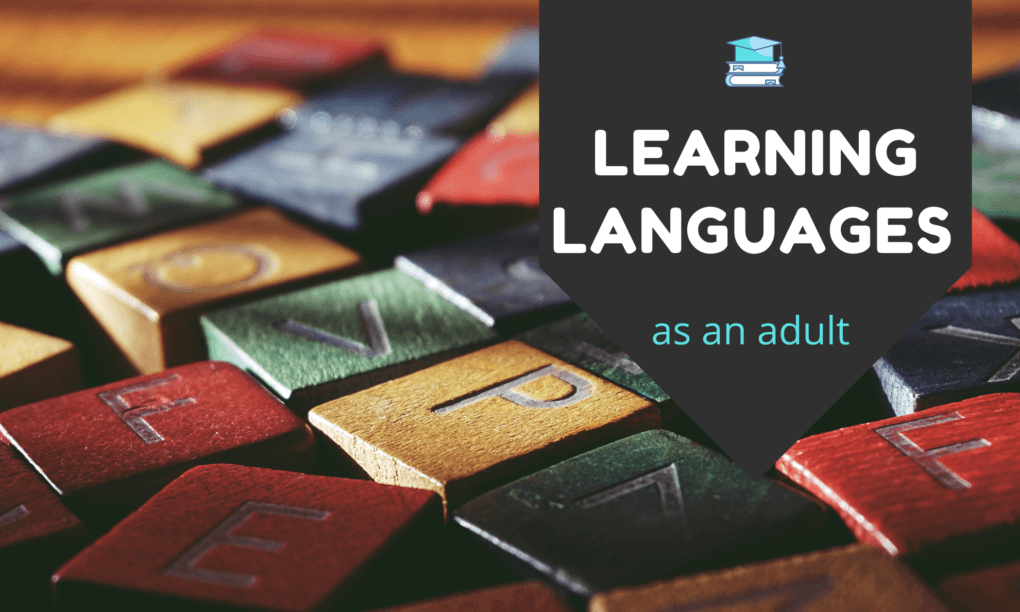Have you heard that learning languages as an adult is terribly hard? Maybe these scientific elaborations have even prevented you from embarking on this language journey. However, with the right tools and practices at hand, being above your 20s will not hinder you in mastering a language of your choice. Intrigued? Read more about the myths of learning languages and discover the best studying strategies for your next linguistic endeavor!
Myths of learning languages as an adult
Kids are the best at learning languages! Yes, it’s true — they’re better learners in general. Kids and youngsters indeed learn intuitively, absorbing every bit of information around them. In a nutshell, they learn differently from us adults.
However, it does not mean that it is terribly hard or nearly impossible for those in their 20s and above to master a foreign language. Forget those statements that as (young) adults we’ve missed our chance to learn a second-third-name-it language. We just have to learn languages differently by using different cognitive abilities — and let’s take advantage of that!
The ultimate age for learning languages is a point of fierce scholarly controversy, ranging from 5 to 18. It is equally hard to determine at what period in life our cognitive abilities change in a way that intuitive learning, mastered by kids, becomes more challenging, thus lowering our chances to learn a foreign language on a near-native level. Other studies reveal that adults have actually outperformed children of different age in a controlled language learning study — here you can read more about this experiment. There is still much more research to anticipate on this point: from neuroscientists, educators, psychologists, and linguists, so let’s not draw decisive conclusions.
In any case, none of these studies have revealed that it is impossible to master a foreign language if you start in your 20s or 50s or whenever you feel like it. Moreover, learning a foreign language at retirement age can potentially lower your chances of getting Alzheimer’s disease and other forms of dementia. Even if you don’t conquer a foreign language, does not this excellent benefit make the process worth pursuing in itself?
Indeed, the rumors that with age it might become harder to memorize things are true. On the other hand, our adult brains have multiple advantages, like making connections, recognizing patterns, and practicing dedication in what we are doing. Therefore, the secret is not in “catching” the optimal age for learning languages but to discover how to advantageously integrate the advantages of each age in your learning practice.
To sum up, the secret of successful language learning is about choosing appropriate learning methods that align with cognition processes in our brains.

For more insights on it, check this book by Richard M. Roberts and Roger Kreuz Becoming Fluent: How Cognitive Science Can Help Adults Learn a Foreign Language. This study not only tells you all the secrets of our cognitive functions and how to make use of them in your language learning (the most critical points are summarized below) but also provides you with a books of confidence — you can do it!
Cornerstones of Learning Languages Effectively
Understand your “why’s”
What is your purpose in mastering yet another language? Understanding your aim will help you determine short-term goals (how fluent should I be in a year?), what type of communicative situations you need to practice (is it for arranging a semester abroad?), and the type of classes (is it a group work or a self-study with a language textbook and Duolingo will suffice?).
Structured practice
Keeping your goals in mind, create a roadmap for learning languages. Decide how many times a week you want to study this language and choose appropriate materials. If it is difficult for you to set up such a language learning roadmap on your own, turn to multiple language textbooks that are appropriate for self-study. Alternatively, you can join an online language school or find a personal teacher or a coach.
Spaced repetition and recall
These two practices are the pillars of any successful learning. Make sure you regularly revise the words and grammar you’ve learned so far. Moreover, don’t just read from your notes but try to recall these words and concepts from your head.
Build learning languages into your routine
Integrate language practice into your daily activities besides the time you dedicate to studies. What do you usually do in your spare time? It might include watching youtube in your target language, listening to podcasts, reading comic books, or adapted novels. Try checking cooking books and recipes in the language you learn — you will not only brush up your vocabulary but also discover new delicious dishes. And don’t be afraid — you don’t need to be advanced to enjoy any of these activities.
Relate to your own experiences
When performing assignments (for example, writing sentences using a special grammar rule), don’t rely only on your fantasies. It is held that when we describe real and familiar experiences, we remember the new vocab much more efficiently. As adults, we already have a bunch of interconnected information stored in our brains. Try to link the incoming bits and pieces to existing memories and associations.
It might be tricky given the circumstances, but you can find a study buddy online.

Choose the right language textbooks
Choosing proper language textbooks contributes to your success as a learner. For self-learners, language textbooks provide you with a carefully designed map of mastering new language skills step by step so that you don’t have to think about where to get materials for the next topic. For group learning, these textbooks are plentiful of fun assignments that help conversations flow.
To find suitable language textbooks, understand your learning identity: are you working in a group? Alone? Do you want to master business jargon or just be able to commit to easy conversations? Answers to these questions will define what kind of textbook you should buy. It is also crucial to know how to work with language textbooks. Here are a few tips on effectively learning from textbooks.
BooksRun has a wide range of language textbooks for all kinds of languages and situations: self-study, college-level language courses, linguistics, and so on. Search for language textbooks you need, and we guarantee you can buy them for the best price. Opting for a used textbook will save you a great deal of money that you can spend on the trip of your dream!

Be mindful of planning fallacies
Be realistic
Learning a new language is complex, and the learning curve might be steep. Be prepared to persevere in order to climb it! Moreover, there is hardly a point in language learning when you can put a full stop and say: “I’ve mastered (insert the language you want to learn).” The more you know, the more there is to learn!
Plan ahead
How long do you think you might need to reach a certain level? Usually, we underestimate the speed with which we acquire fluency, so investigate this question (talk to other learners or check language textbooks).
Plan financially
You might think that learning languages depends on your own perseverance and willpower, and it does, but not only. Learning languages is also expensive, especially if you plan to join a language school or a summer language course. Moreover, language textbooks can cost quite a bit. If you want to save on them, buy used language textbooks — it will save you a bunch of money!
Adopt the growth mindset
This might be the most crucial element for learning languages as an adult. Kids don’t feel ashamed of making mistakes or saying something wrong. They are not afraid or ashamed of falling when they are just about to start walking confidently.
Adults, on the other hand, are mindful of what other people think of them. We are taught to feel bad about getting “a bad grade” and are uneasy about showing our weaknesses and momentary failures (like not being able to conquer tough grammar from the first go).
To cure this counterproductive thinking, acknowledge that learning languages and mastering any skill, in general, is not an inborn talent. It is a process developed through practice and perseverance, and anybody who tries hard enough can achieve a comfortable level of fluency.
There is another helpful trick that helps to actually talk and use the language, regardless of your mistakes and level. Consider this: you are not ashamed of not knowing a language at all (let’s say, Romanian). Then why are you afraid of using that 20% of Spanish or Norwegian that you’ve just learned? Be proud of them and show your knowledge off!


